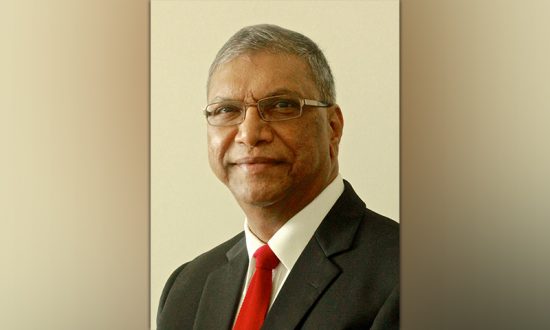Dr. Balakrishna Grandhi is the Professor of Marketing & Strategy Dean – Global MBA & Master of Global Business, SP Jain School of Global Management. Dr. Grandhi has over four decades of experience in academics and industry, as a teacher/consultant/entrepreneur, from across the US, Canada, Singapore, Sydney, Dubai, and India. He continues his passion to add value and make a difference through coaching and mentoring for students, faculty, senior managers, and CXOs. He has a Ph.D. in Marketing, Carlson School of Management, USA.
The COVID-19 pandemic and need for rapid digital transformation are disrupting the business landscape across the world. COVID-19 has changed lifestyles, shopping behavior, and spending pattern. Technologies have opened new ways of doing business, enhancing operational efficiency and innovative marketing strategies.
Globalization is cascading across geographies and business environments including culture, economies, geopolitics, climate change, etc. Numerous industries including automotive, food & beverage, banking & finance, health care & pharmacy, hospitality, aviation, etc have been severely impacted. As businesses face increased imperatives to adapt to these trends, they are experiencing a crisis of skills like never before.
The skill-set needed post the pandemic is going to be drastically different from the skillset required pre-pandemic. Companies are looking to hire people who possess a global mindset, stay flexible, are willing to adapt, critically evaluate options, cope with ambiguity, manage crises, communicate effectively, connect emotionally, embrace innovation and stay tech-savvy. These are among the essential skills to help businesses add value for enabling growth and profitability in an increasingly competitive environment and changing global scenario.
Hence, we are witnessing the emergence of a unique scenario—many unemployed graduates on one hand, and rapidly evolving skill needs on the other. There is an opportunity in solving this mismatch. to solve the latter problem. With this mismatch comes an opportunity to develop courses addressing the need for a new skill set.
One proven way to help students develop these skills and a global mindset is a multi-city programme. In this article, we will discuss what a multi-city education programme is and how it helps address global industry challenges.
Role of multi-city learning model in helping students address complex global issues
At a time when companies are looking for graduates with a global mindset to add value to their organization, a multi-city model has more relevance than ever.
An MBA programme taught using a multi-city model provides students with a chance to expand their knowledge beyond regional focus and gain a global outlook. These programmes enroll students from different parts of the world. They can study in a different city in a different country each term and get exposed to different languages, ethnicities, and cultures. Students get an insight into heterogeneous business perspectives and develop the cultural sensitivity required to work with people from across the world. By learning in teams with students from other countries, they also get to develop their interpersonal and networking skills.
When students study in a different country each term and get immersed in the cultural and business environment of that country, they understand how to manage the business and adapt their approaches in different environments. They get exposure to the supply chain, logistics, enterprise innovation, tools, and technologies used by corporates across geographies. Hence, develop a broad range of managerial, analytical, technical, and soft skills relevant to a wide range of international issues.
At each different city, students get taught by local faculty, work on projects for local companies and engage with local practitioners. Leaders from successful companies also share their hands-on experiences in the classroom. The issues and topics taken by them are in line with the themes embedded in the curriculum, making the learning very relevant to the real world. Hence, they do not learn in a silo but can see a larger landscape by embracing cross-cultural and cross-business intelligence. They can learn to understand different markets, and then develop consumer-centric solutions to help organizations in value creation. For the programme to be effective, students are continuously evaluated on their performances across a range of parameters and projects taken up on various campuses.
International multi-city programmes also help students enhance their career prospects and apply for various international job opportunities. They become a part of a global network and can form connections, exchange knowledge and experience with peers from around the world.
While the onset of the pandemic had presented some challenges in students being able to travel to different countries, it is only a temporary glitch. With people increasingly getting vaccinated and the improvement in herd immunity, students can travel again and learn in a global environment.
As the education sector emerges from the effects of the pandemic, we are presented with an opportunity to relook at how we deliver course learning. Exploring and incorporating the multi-city model can help us groom future-ready global professionals. They will possess skills necessary not to just thrive, but also grow and command a premium in the new normal that is more global, digital, and dynamic.




